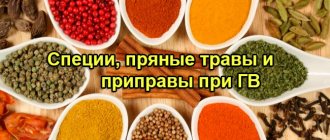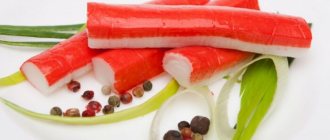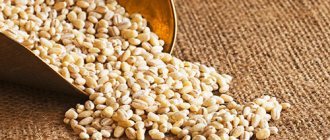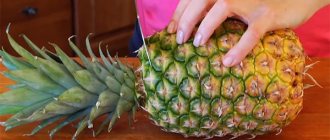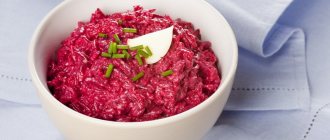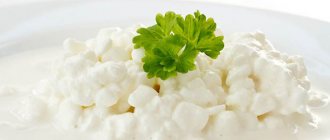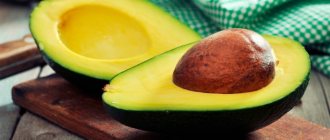To diversify or improve the taste of familiar dishes, women try to include various seasonings in their menu when breastfeeding. But not all additives are allowed during lactation, because the baby may be allergic to one or another ingredient. Therefore, young mothers often ask their doctor, is it possible to use soy sauce while breastfeeding?
Soy sauce is not strictly prohibited during breastfeeding, but it is not recommended to eat it in the first months after the birth of the baby.
Composition of soy sauce
The main component of Asian cuisine is soy sauce. It is a product of fermentation of soybeans under the influence of specific fungi. In appearance, it is a dark liquid with a specific odor, which is designed to emphasize the taste of many dishes.
Using the classical method, the seasoning is produced for up to 2.5 years. Advances in chemistry have greatly shortened this process, now requiring only a few months to produce. But during production, a dangerous substance is formed - chloropropanol, which has carcinogenic qualities. The product produced using this technology has a low price, is available to many consumers, but is not healthy. Natural soy product has positive qualities. If there are a large number of synthetic additives, the sauce will be a harmful condiment for the body.
The classic sauce contains water, proteins, carbohydrates, dietary fiber, and ash. There is almost no fat, which allows the product to have a low calorie content. Vitamins, minerals and amino acids enrich soy sauce, providing it with more benefits than harm.
Production technologies
The original soy sauce recipe was developed several thousand years ago in China. Later it was brought to Japan by Buddhists and improved for centuries. Thanks to their efforts, today Japanese sauce is made from soybeans with the addition of roasted wheat, and fermentation lasts for years. The production technology is that soybeans are preliminarily subjected to heat treatment, then mixed with wheat or barley, salt is added (ideally sea salt) and placed in bags or barrels and exposed to the sun. Over a long period (from several months to 3 years), natural fermentation occurs, during which soy sauce is released . The resulting “juice” is filtered and bottled. This is real soy sauce, which does not require preservatives or colorings. Its natural color is red-brown and its natural antiseptic properties avoid the addition of preservatives.
Natural product produced by natural fermentation of soybeans
In the 20th century, another scenario for the production of soy sauce on an industrial scale was developed, which had a detrimental effect on its beneficial properties. In order to speed up the fermentation process, chemicals containing hydrogen chloride began to be added to the raw materials . As a result, it became possible to obtain the finished product in just a few weeks. True, the characteristic taste, aroma and color cannot be obtained. This problem is solved by adding chemical ingredients or, at best, using caramel coloring, salt and corn syrup. However, the greatest danger is posed by the substance chloropropanol, a carcinogen released during accelerated fermentation. Its content in finished products is not controlled and can be extremely high.
When considering soy sauce as a seasoning in the diet of a nursing mother, it should be clarified that the “artificial” product is contraindicated during breastfeeding. It is permissible to use only real soy sauce, obtained through natural fermentation without chemical additives. In this case, it is necessary to take into account a number of additional nuances - dosage, possible contraindications, age and individual characteristics of the baby.
Benefit
With proper use of high-quality soy sauce, the body of the baby and nursing mother will receive many useful substances. This seasoning is better than mayonnaise and ketchup. When properly made, only soybeans, water, wheat and salt are used.
Useful components of soy seasoning for a nursing mother.
- Protein is of plant origin and is easily digestible. The protein composition is similar to human protein, therefore it serves to strengthen muscle fibers.
- B vitamins have a beneficial effect on the nervous system, normalize sleep, strengthen hair, nails, and tooth enamel. They improve metabolic processes, restore vision after pregnancy, and reduce migraines.
- Vitamins A, E - increase skin elasticity, improve appearance, and improve mood.
- Iron, magnesium, calcium - help the functioning of the cardiovascular system, stabilize the functioning of internal organs.
- Tryptophan – reduces the risk of nervousness, irritability, and nervous diseases.
- Antioxidants – help fight free radicals, protect against tumor formation, and slow down the aging process.
- Copper – disinfects blood, strengthens the walls of blood vessels.
- Phosphorus – stimulates brain function, maintains the strength of bones and cartilage.
- Folic acid – supports the functioning of the nervous system, ensures the health of the body’s reproductive system.
- Phytoestrogens – normalize hormonal levels.
Composition and beneficial properties
Soy sauce resembles meat in composition, because it contains proteins in the amount of 30-50% of the product weight.
In addition, it includes the presence of starch, lecithin and choline, a fatty oil. Moreover, the ratio of these elements is ideal for the human body. Soy contains a lot of vitamins and beneficial elements, including calcium and potassium, iron and magnesium, vitamins B and E. These substances are necessary for the full growth and development of the child, as well as for the rapid recovery of a woman after childbirth.
Soybean performs a number of important functions:
- prevents excess weight;
- helps with osteoporosis and heart disease;
- reduces the risk of cancer;
- restores and strengthens the structure of hair, nails and skin;
- slows down aging;
- normalizes hormonal levels.
By the way, soy is an excellent food for vegetarians and for those who want to lose weight. It contains the same beneficial elements as meat, but does not contribute to gaining extra pounds. Despite its positive properties, soy sauce during breastfeeding can also have the opposite effect.
Table: chemical composition and nutritional value
| Nutrient | Contents per serving 40 g | % of the daily value of 40 g* |
| Calories | 20.3 kcal | 1.43% |
| Squirrels | 2.5 g | 4% |
| Fats | 0 g | 0% |
| Carbohydrates | 2.7 g | 2.11% |
| Vitamin B1, thiamine (mg) | 0,01 | 1% |
| Vitamin B2, riboflavin (mg) | 0,07 | 4% |
| Vitamin B4, choline (mg) | 7,32 | 1% |
| Vitamin B5, pantothenic (mg) | 0,12 | 2% |
| Vitamin B6, pyridoxine (mg) | 0,06 | 3% |
| Vitamin B9, folate (mcg) | 5,6 | 1% |
| Vitamin PP, Niacin | 0,88 | 4% |
| Calcium, Ca (mg) | 7,6 | 1% |
| Magnesium, Mg (mg) | 17,2 | 4% |
| Sodium, Na (mg) | 2254,8 | 173% |
| Phosphorus, P (mg) | 50 | 6% |
| Iron, Fe (mg) | 0,77 | 4% |
| Vitamin RR, NE (mg) | 1,48 | 7% |
| Potassium, K (mg) | 86,8 | 3% |
| Manganese, Mn (mg) | 0,17 | 9% |
| Copper, Cu (mg) | 0,04 | 4% |
| Zinc, Zn (mg) | 0,21 | 2% |
*% of the daily value of 40 g - approximate values for a nursing woman.
Harm
This product, containing many useful ingredients, is needed by a nursing mother. It is especially suitable for a woman who wants to lose weight gained during pregnancy. But you must definitely take into account the possible harm from soy sauce.
Soybeans may cause an allergic reaction. Even if it was not there before when using this product, it may appear suddenly. A nursing woman needs to carefully monitor her feelings and the condition of her baby.
The salt content in the sauce is too high. Consumption of such products has a negative effect on the liver and kidneys, and there is a risk of edema. The body is exposed to great stress during lactation. There is no need to overuse salty foods in your diet.
Some manufacturers add GMOs to the sauce. They allow you to make a product faster and cheaper. For a young mother, such seasonings should not be consumed. The effects of GMOs on the body have not yet been fully studied, but their negative impact on human development has been noted.
It is important to choose the right soy sauce for mother during lactation. It must be natural to bring only benefits. It must be used wisely so as not to harm your health. But nutritionists believe that all sauces are a dietary habit and not a vital product. Consuming large amounts of soy sauce during lactation can cause brain sluggishness and problems with the thyroid gland.
Introduction of sauce to the menu of a nursing mother
In order to prevent negative effects on the body of the baby and mother, you can start eating such an additive to dishes only at the 4th or 5th month of lactation. It’s even better if a young mother starts trying the sauce after six months of breastfeeding. If the child does not perceive the new ingredient well, he develops colic or allergies, then the portion is reduced or completely eliminated.
However, you should not use soy sauce while breastfeeding constantly. You can add seasoning to food only occasionally and within the permissible dosage (from 30 to 50 ml). Chronic use or exceeding the permitted volumes can lead to negative consequences for the newborn.
Introduction rules
To successfully introduce a new product, you need to use special rules:
- enter only one product into the menu. The response will indicate an allergy to it;
- The first test of the sauce should take place if the baby has no health problems. He should not have a tummy ache, intestinal gases accumulate, or gums hurt from cutting teeth;
- the mother eats the sauce in the morning so that she can observe the baby’s behavior the rest of the time;
- It is better to eat new foods immediately after breastfeeding. In this case, a small amount of substances from the new product will get into the milk at the next feeding;
- If the baby’s first reaction to a new product is negative, then this product should be postponed. It can be reintroduced into the diet in a month.
By following these rules for introducing your baby to new products, you can ensure a painless expansion of the nursing mother’s menu.
Reviews
Antonina, St. Petersburg
To pamper me, my girlfriend bought me sushi with soy sauce. I was skeptical about raw fish and did not eat them. But I tried this delicacy sauce and was left disappointed. The baby developed red spots on his face. As it turned out, the product contained many chemical additives, and this is unacceptable, so you need to choose only high-quality products.
Milana, Moscow
A week ago my husband brought home soy sauce. Of course, I was surprised, but I decided to try it, having first studied the information on the Internet about the effect the product could have on a child. A couple of days passed, no reaction occurred. Therefore, eat a little at first to see how the baby reacts to the innovations.
As can be seen from the reviews, spicy seasoning should be on the diet menu for breastfeeding, but it should be a natural product. Before you buy soy sauce, you need to carefully study its composition and not abuse it.
- Related Posts
- Can a nursing mother have squash caviar?
- Ryazhenka in a complete diet during breastfeeding
- Popcorn for a nursing mother: pros and cons of the product during breastfeeding
« Previous entry
When should you give up?
For certain health problems, breastfeeding women should avoid consuming soy seasoning. It must be remembered that breastfeeding a baby is a big burden on the body. In the presence of chronic diseases, internal organs work under increased stress. The mother’s body has not had time to rest after pregnancy; it already has to cope with new tasks. You need to take care of your health and not provoke it by overloading or consuming low-quality products.
You should avoid the sauce if you have the following problems:
- problems with protein metabolism;
- kidney disease;
- gluten intolerance;
- soy intolerance;
- obesity.
A nursing woman will protect her health by eating right, avoiding seasonings and sauces.
How to choose?
A nursing mother needs to eat high-quality foods, so you need to know the rules for choosing seasonings:
- good soy sauce is sold only in glass, transparent containers;
- the liquid should not have foreign impurities, sediment, and be the same brown color;
- the composition may contain small quantities of peanuts and garlic;
- the storage period cannot exceed 2 years;
- The average price of a standard bottle is never less than 300 rubles.
The composition should not contain chemical additives, dyes or flavors. There should also be no preservatives; seasoning made from natural raw materials can be stored for several years without artificial additives.
It is worth noting that a quality product is not sold on tap. The sauce must be carefully sealed to retain its beneficial properties.
What to consider when choosing a sauce of natural origin
When choosing a bottle of sauce on a store shelf, you should look at:
- Packaging: it should be glass, since such containers will not absorb all the beneficial substances from the liquid.
- Color: it must be brown (a darker or lighter shade is allowed), transparent and without any impurities.
- Ingredients: A good food additive should contain only beans, wheat, salt, sugar and vinegar. Peanuts or garlic can also be used in production, but in minimal quantities.
- Cooking method.
- Date of manufacture and shelf life.
- Price: natural sauce is quite expensive and rarely costs less than 300 rubles. Cheaper analogues are prepared using a quick method; such a product cannot be eaten during lactation.
The sauce can be stored for quite a long time, almost two years. However, you can do it yourself. The taste of the homemade product is slightly different from the classic one, but its quality and composition leave no doubt. You can serve it with meat, rice or other side dishes.
It is much better to use soy sauce than mayonnaise, store-bought ketchup or other harmful sauces.
A little soy sauce, served, for example, with plain rice, will not harm a nursing mother. But only if it is of good quality, and the woman tries this dish after four months of breastfeeding. However, you should not use this food additive too often or in large quantities.
What to replace it with?
If necessary, soy seasoning can be replaced. The broth with apple or balsamic vinegar will taste like your favorite delicacy.
To prepare this seasoning, you need to take 200 ml of fresh beef broth, add to it 2 small spoons of apple cider vinegar, 2 large spoons of balsamic vinegar, a pinch of garlic powder, white pepper and ground ginger.
Mix all ingredients, place in a saucepan, cook over low heat until the volume is reduced by 50%. If desired, you can add salt at the end. This mixture will perfectly replace soy sauce for a nursing woman in terms of taste and beneficial composition. Making it at home will guarantee quality and the absence of harmful impurities.
Recipes with soy sauce
Sometimes a nursing mother does not know what to cook for herself with such great dietary restrictions. Recipes using soy seasoning will help diversify the menu during lactation.
Baked potatoes with soy sauce
Components:
- Potatoes – 5 – 6 pieces;
- Vegetable oil;
- Soy sauce - 3 large spoons.
Preparation: Cut the peeled potatoes into slices. Boil for 5 minutes. Preheat the oven to 200 degrees. Grease the pan with oil, lay out the potato wedges and pour the sauce on top. Bake in the oven for 25 minutes.
Fish cutlets
Components:
- Fish fillet – 400 g;
- Carrots – 1 piece;
- Soy sauce – 3 large spoons;
- Onion – 1 piece.
Preparation: fillet of fish allowed during lactation, peeled carrots and onions through a meat grinder. Add soy seasoning. Stir well. There is no need to add salt, there is enough in the sauce. Line a baking pan with parchment and grease with butter. Make cutlets and place in pan. Bake in a preheated oven at 200 degrees for 40 minutes.
The menu of a nursing mother is often monotonous. She can treat herself to some seasonings, such as soy sauce. To ensure that a new dish on the menu does not harm the baby, you need to take precautions and choose the right product.
Possible negative impacts
Sushi is the most popular dish combined with soy sauce, but during lactation it is not recommended to eat raw fish.
The greatest harm to mother and baby is a surrogate passed off as soy sauce, prepared in violation of production technology and containing hazardous substances. However, even a high-quality product can negatively affect the baby. Let's take a closer look at the possible side effects.
- Negative effects on the endocrine system. It is known that regular consumption of soy can provoke thyroid diseases. Because of this, soy sauce is contraindicated for young children.
- Allergy risk. Soy is a highly allergenic product, and its components can pass into breast milk after consuming soy sauce.
- Inhibition of intellectual development. Soy sauce contains antioxidants that can eliminate the symptoms of menopause. But they can have a negative impact on the baby’s brain activity if the mother “abuses” soy sauce during lactation.
Contraindications for mother:
- hypertension;
- kidney diseases;
- individual intolerance.



